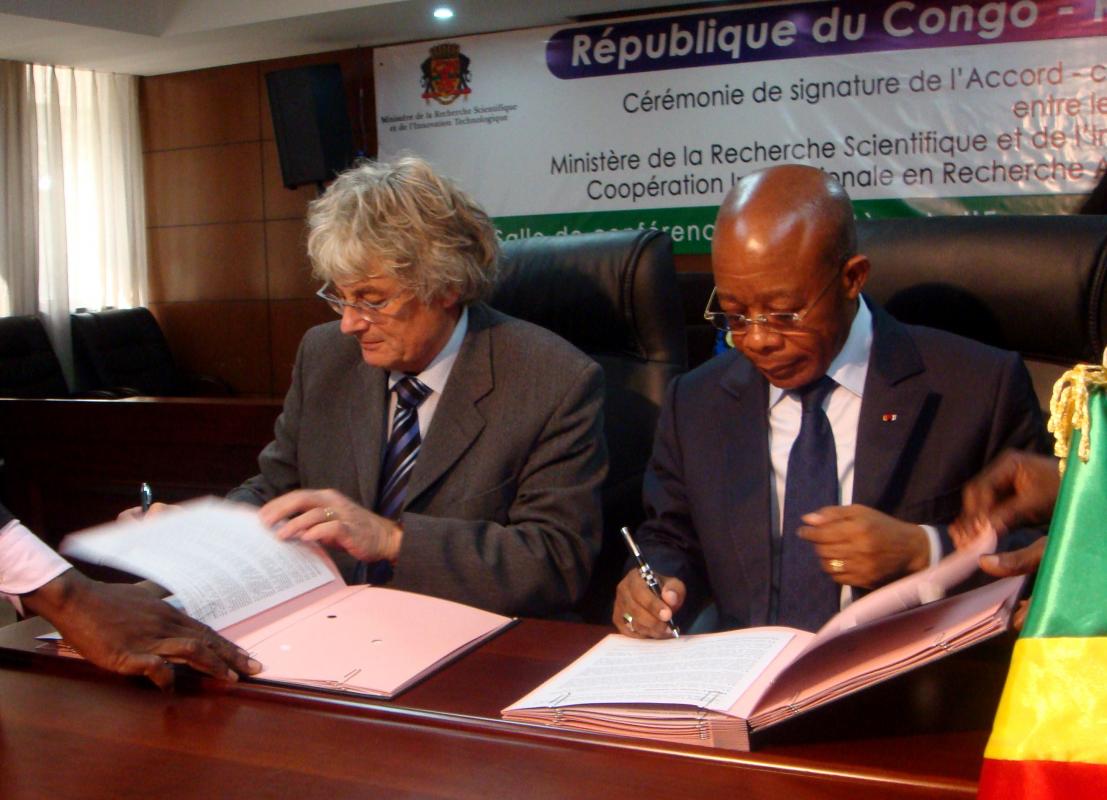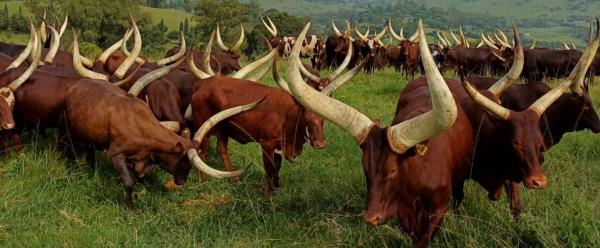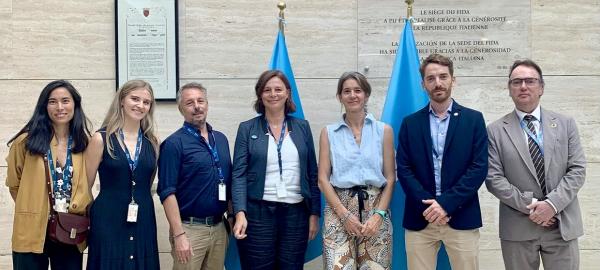Institutional news 8 December 2025
- Home
- CIRAD news
- News
- Relaunch partnership CIRAD-Congo
CIRAD has relaunched and broadened its scientific partnership with Congo

© Denis Depommier
The general agreement signed in Brazzaville on 15 January by CIRAD President Managing Director Michel Eddi and Congo's Minister of Scientific Research and Technological Innovation Martin Parfait Aimé Coussoud-Mavoungou is intended to reboot the historic partnership between Congo and France. It follows on from 30 years of cooperation, mainly focusing on reforestation and the development of industrial plantations.
The new general agreement broadens the existing partnership to cover agriculture and agrifoods, at a time when Congo is working to reboot its agricultural sector as part of its national development plan.
Human, plant and animal health, within a One Health approach, is the third major axis for cooperation set out in the agreement, and a project has already been launched in this field. Ebosursy, coordinated by CIRAD, set out to build surveillance capacity as regards the Ebola virus, in partnership with Marien Ngouabi University (UMNG) in Congo.
Lastly, in Congo and elsewhere in central Africa, CIRAD is continuing to work towards sustainable management of forest ecosystems. It is supporting the country by means of several projects on the issues surrounding climate change – adaptation and mitigation – and biodiversity conservation.
Within this partnership, CIRAD also hopes to provide Congo with policy and scientific support aimed at preserving forest peatland zones, which cover almost 150 000 km² between Congo and DRC. These zones are a major carbon sink, but are also a time bomb in terms of the volume of greenhouse gas that would be released were they to be exploited. This support fits into the "Environment-Climate" roadmap signed by France and Congo in 2019.
These operations are part of a research framework that extends to all of central Africa, with the recent establishment of a research network on the forests of central Africa (R2FAC). The network was initiated by CIRAD, and involves a dozen research and educational organizations in central African countries. Congo's Institut national de recherche forestière (IRF) and UMNG are founder members



























